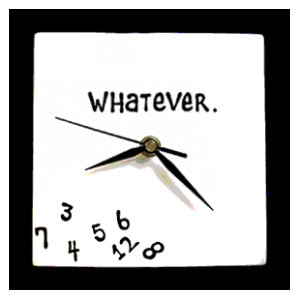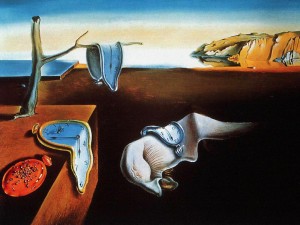I don’t think I will ever understand Daylight Saving Time! It’s just a one hour time change but for some reason, I always feel like I have jet lag for a few days. I am tired or not tired at the wrong times, hungry or not hungry at the wrong times, and in general I just feel a little off balance. The term “Daylight Saving Time” doesn’t even make sense- how do you save daylight, anyway? The number of daylight hours don’t change, they just get shifted around and I’m not convinced they should be. I know some people who say they love getting out of work while the sun is still up, but I would rather have the daylight in the morning. It was just starting to be okay when I wake up and now it feels like November again!
Before I go on, I just want to clarify that the correct term is Daylight Saving Time, though most people add an extra “s” and say “savings.” I just found this out and it sounds a little strange to me, so I thought I’d clear that up in case it looks like a typo or like I don’t know what I’m saying. Now for some DST trivia: The earliest idea of a Daylight Saving Time came from Benjamin Franklin in 1784. It was first implemented in 1916 by Germany and Austria-Hungary in order to save fuel for the war effort. In 1918 the United States passed the Standard Time Act and DST was on and off from then until the Uniform Time Act of 1966, when Congress set Daylight Saving Time from the last Sunday in April until the last Sunday in October. The dates changed a few times over the years but since 2007 DST is observed from the second Sunday in March until the first Sunday in November, the goal being a reduction in energy use during days of later daylight hours. States could bypass the time change by passing a local ordinance, but most of the United States goes through the time change, with the exception of Hawaii and most of Arizona. Most countries observe Daylight Saving TIme as well but dates vary.
And how do people feel about Daylight Saving TIme? I bet you can tell I’m not a fan. And I’m not alone; studies show that the transition to DST affects health, mood, and general stress levels. The main problem is sleep deprivation, which can set into motion a whole lot of other problems. In the first three weeks of DST there is a significant increase in heart attacks and suicide rates, which doctors believe might come from the negative effects of sleep deprivation on cardiovascular and mental health. Lack of sleep also contributes to a decrease in work productivity. Farming and other industries that depend on the sun do not benefit from the time change either- chickens don’t know you changed the clock and it can take weeks for them to reset their internal time clocks and animals get hungry when they expect to be fed. I can tell you that parents don’t appreciate their babies being thrown off schedule either.
For those of us who don’t like Daylight Savings Time, it doesn’t look like there is much we can do to change things right now, although some years I’m tempted to just ignore DST and see what happens. There are some small things we can try, though, to make the transition easier and healthier. Exercising stimulates serotonin release which can help adjust our internal time clocks. So can about an hour of daily exposure to bright natural light. If you can’t spend an hour outdoors (and since it’s still early March it’s still too cold for many of us to do that) you can use a light box. Avoiding caffeine and alcohol later in the day will help you fall asleep sooner, which will make it less painful to get up an hour earlier in the dark. And remember- when you change your clocks it’s also a good time to change the batteries in your smoke and carbon monoxide detectors






